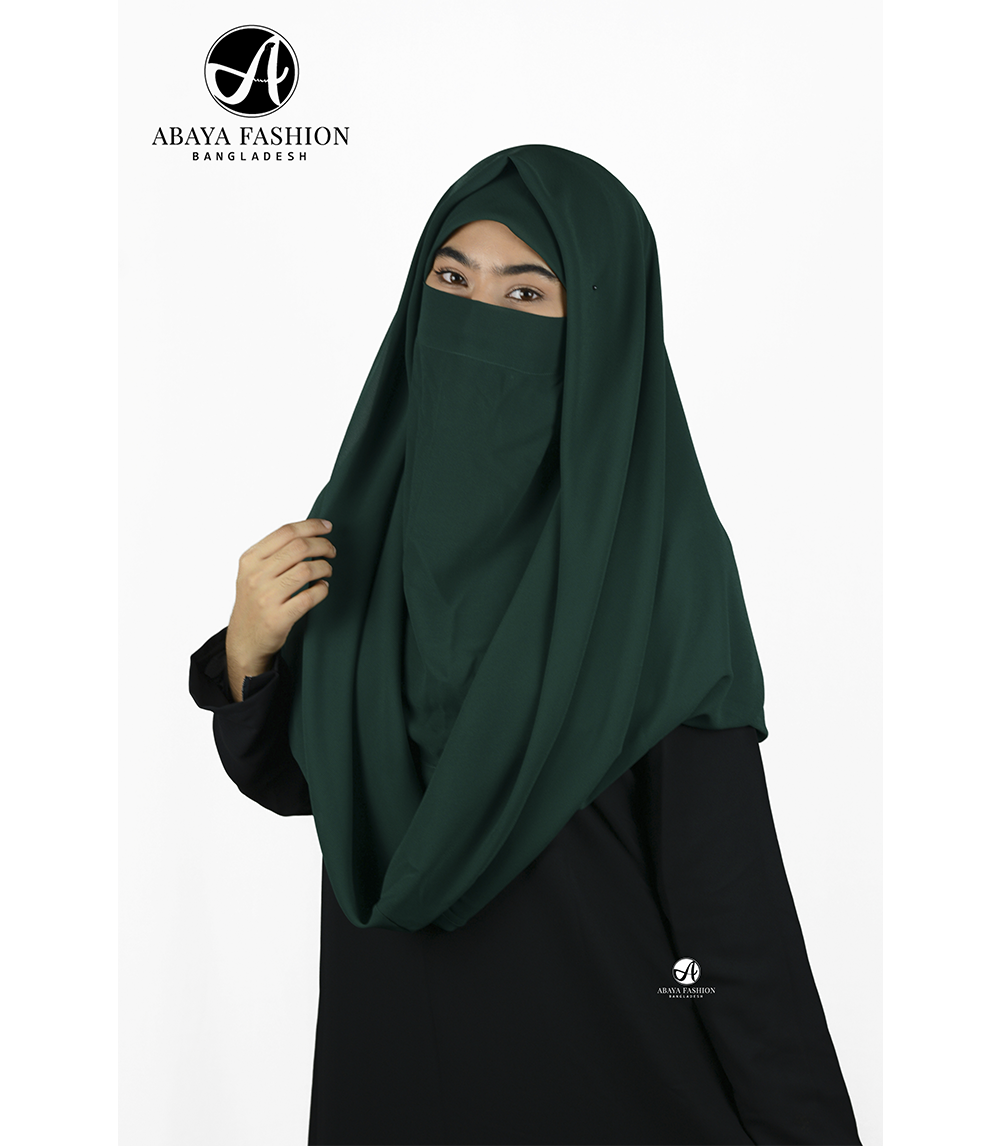- Empty cart.
- Continue Shopping
What is Modesty? Definition of Modesty

Modesty doesn’t mean you only cover yourself in clothes. You have to be simpler, patience in your life for the sake of Allah. This is both for men & women. It helps to make your life better and easier.
Modesty isn’t limited to what we wear — it extends to how we speak, how we behave, and how we interact with others. It is about purity of heart and humility of spirit.
The Prophet ﷺ said:
“Modesty is part of faith, and faith leads to Paradise.”
(Sahih Muslim 36:56)
The Arabic word “Haya” comes from “Hayat,” meaning life, showing that modesty is not just a moral code but something that gives spiritual life and peace to the believer. The Prophet Muhammad ﷺ said:
“Every religion has its distinct characteristic, and the distinct characteristic of Islam is modesty.”
(Sunan Ibn Majah 4181)
Let’s understand what modesty truly means from an Islamic perspective and how it reflects in different areas of life — from clothing to conduct.
Definition of Modesty in the Islamic Perspective
In Islam, modesty is defined as the state of being humble, decent, and morally upright in one’s behaviour, clothing, and character. It’s not just for women but equally emphasised for men. Modesty protects the soul from arrogance, preserves one’s honour, and strengthens faith.
How to Be Modest? (According to Islam)
Islam teaches that modesty is both an inner quality and an outward practice. It’s a balance between humility of the heart and decency of the body. To truly live with Haya (modesty), one must reflect it in every action, word, and intention. Here’s how Islam guides us to be modest in everyday life:
- Lower Your Gaze:
Allah commands both men and women to guard their eyes from looking at what is forbidden. This preserves the purity of the heart and prevents temptation. “Tell the believing men to lower their gaze and guard their private parts…”
(Surah An-Nur 24:30) - Dress with Dignity and Decency:
Modesty in clothing means covering the body properly — loose, non-transparent garments that do not expose or attract unnecessary attention. Wearing a khimar, hijab, or abaya fulfils this guidance with grace. - Speak with Humility:
Islam encourages believers to speak softly, truthfully, and respectfully. Modesty reflects in how you communicate — avoiding gossip, arrogance, and harshness. “And be moderate in your pace and lower your voice; indeed, the most disagreeable of sounds is the voice of donkeys.”
(Surah Luqman 31:19) - Avoid Showing Off:
True modesty is being humble in actions and appearance. Avoid boasting about wealth, beauty, or achievements. The Prophet ﷺ said: “He who has in his heart an atom’s weight of pride shall not enter Paradise.”
(Sahih Muslim 91) - Be Mindful of Behaviour:
Modesty includes the way one walks, laughs, and interacts. Islam teaches moderation — not being too loud, aggressive, or attention-seeking. - Purify the Heart:
Modesty starts from within. Clean intentions, sincerity, and a sense of shame before Allah help maintain a modest character. A modest heart naturally reflects modest behaviour. - Practice Modesty Online:
In today’s digital age, modesty also applies to social media. Posting decently, avoiding self-display, and maintaining respect in digital interactions are modern ways to uphold Haya. - Remember Allah Often:
Constant remembrance (Dhikr) keeps the believer conscious of Allah’s presence. When you remember that Allah sees and knows everything, modesty becomes your natural state.
What Modest Actually Are
Modesty in Islam is not oppression; it is liberation. It frees the believer from societal pressures to look a certain way or seek constant validation. It strengthens self-worth and brings peace to the heart.
Modesty is confidence with humility. It’s dressing beautifully without arrogance, speaking wisely without harshness, and living gracefully without showing off.
In the modern age, modesty stands as a timeless value — a reminder that faith, grace, and beauty can coexist. From the khimar that covers with respect to the lace kaftan dress that celebrates elegance, from the shrug and hijab at work to the abaya at home — every act of modesty is a reflection of inner faith and outer dignity.
Categories of Modesty in Daily Life
To understand modesty practically, let’s see how it reflects in different aspects of a Muslim’s daily life — from celebrations to work and home.
1. Modesty for Special Occasions — Your True Essence of Modesty
When attending weddings, Eid celebrations, or formal gatherings, Islam does not restrict adornment or style. However, it encourages that beauty be expressed with dignity.
For instance, a lace kaftan dress can be a perfect example of occasion modesty. Flowing, elegant, and beautifully detailed, it covers the body gracefully while allowing self-expression. The Co-Ord Set, on the other hand, offers a modest yet modern choice for women who want sophistication without compromising faith-based values.
Occasion modesty means dressing in a way that feels celebratory but within the limits of Islamic teachings — not revealing, tight, or extravagant beyond need.
Buy Lace Kaftans from – Lace Kaftan
2. Modesty in Gatherings — Simplicity with Luxury Touch
When meeting friends, family, or attending social events, modest dressing speaks volumes about one’s inner character. A Premium Quality Abaya with a luxury touch reflects the perfect balance — sophisticated, comfortable, and modest.
In Islam, gatherings are not just social; they are opportunities for connection and gratitude. Wearing attire that is both graceful and respectful keeps the environment pure and dignified.
The Prophet ﷺ reminded:
“Allah is Beautiful and loves beauty.” (Sahih Muslim 91)
This Hadith emphasises that Islam doesn’t discourage beauty; it simply guides us to express it in the right way — with humility and moderation.
Buy the Co-Ord set from Avellyn
- Lara Co-Ord – Best outings, Modest collection ever with great design and Colour theme
- Daisy Dream Co-Ord – Elegant and Premium
3. Modesty in Workwear — Smart, Simple, and Respectful
In professional environments, maintaining modesty is about presenting oneself with respect and confidence. Workwear cover-up includes covering appropriately while being comfortable and elegant.
A shrug layered over a modest blouse or dress can provide extra coverage while maintaining a neat and modern look. The hijab, symbolising faith and commitment, adds a dignified touch that aligns with Islamic principles.
Women who wear hijab at work embody courage, discipline, and identity. They remind others that modest is not an obstacle to success — it is a reflection of integrity and professionalism.
Workwear abaya tip: Choose breathable fabrics, modest cuts, and colours that complement your environment while preserving your Islamic identity.
Find your Workwear Abaya from -> Avellyn
We have
1) Waterfall Shrug – Best for Workwear, Simple, under weight & casual
Buy from – Waterfall Shrug
2) Sinthia Shrug – Professional Shrug for modest women, Breathable, elegant & no colours
Buy from – Sinthia Shrug
4. Simple Modesty — Everyday modest in Lifestyle
Simple modesty means practising humility in your daily life — in how you talk, walk, or even post on social media. It’s about not seeking unnecessary attention, avoiding arrogance, and showing respect in speech and appearance.
You can wear simple dresses, neutral colours, and natural tones — the essence lies in being genuine and avoiding extravagance. Islam teaches that modesty should flow naturally from your heart, not just your clothing.
Remember: modesty begins with intention (niyyah). Even a simple outfit becomes an act of worship when worn with the intention to please Allah.
5. Home wear — Comfort Meets Faith
Home is where the heart rests — but modesty doesn’t end at the doorstep. Maintaining home wear means dressing and behaving with decency even in private settings, especially around family members.
A comfortable abaya at home provides both modest coverage and relaxation. It reminds believers that modesty is a continuous lifestyle — not just for the outside world but also within personal spaces.
Islam encourages believers to maintain cleanliness, decency, and self-respect even when unseen, because Allah is always watching.
“Allah knows what is open before them and what they hide.” (Surah Al-Baqarah 2:77)
Modesty Definition (Islamic View):
Modesty in Islam, known as Haya, means humility and decency in behavior, dress, and thought. It teaches self-respect and moral dignity for both men and women. Islamic modesty includes covering the body with garments such as the khimar, abaya, hijab, and lace kaftan dress while maintaining modest conduct in gatherings, work, and at home.Modest by Occasion:
- Occasion: Graceful outfits like a lace kaftan dress or Co-Ord Set for celebrations.
- Gathering: Premium Quality Abaya with a luxury touch for social events.
- Workwear: Smart shrug and hijab combinations for professional coverup.
- Home wear: Comfortable abaya that balances relaxation with faith.
Modesty, at its core, is more than fashion — it is a reflection of faith, identity, and inner peace. It teaches that beauty lies not in exposure but in grace, and true confidence is found in self-respect.



